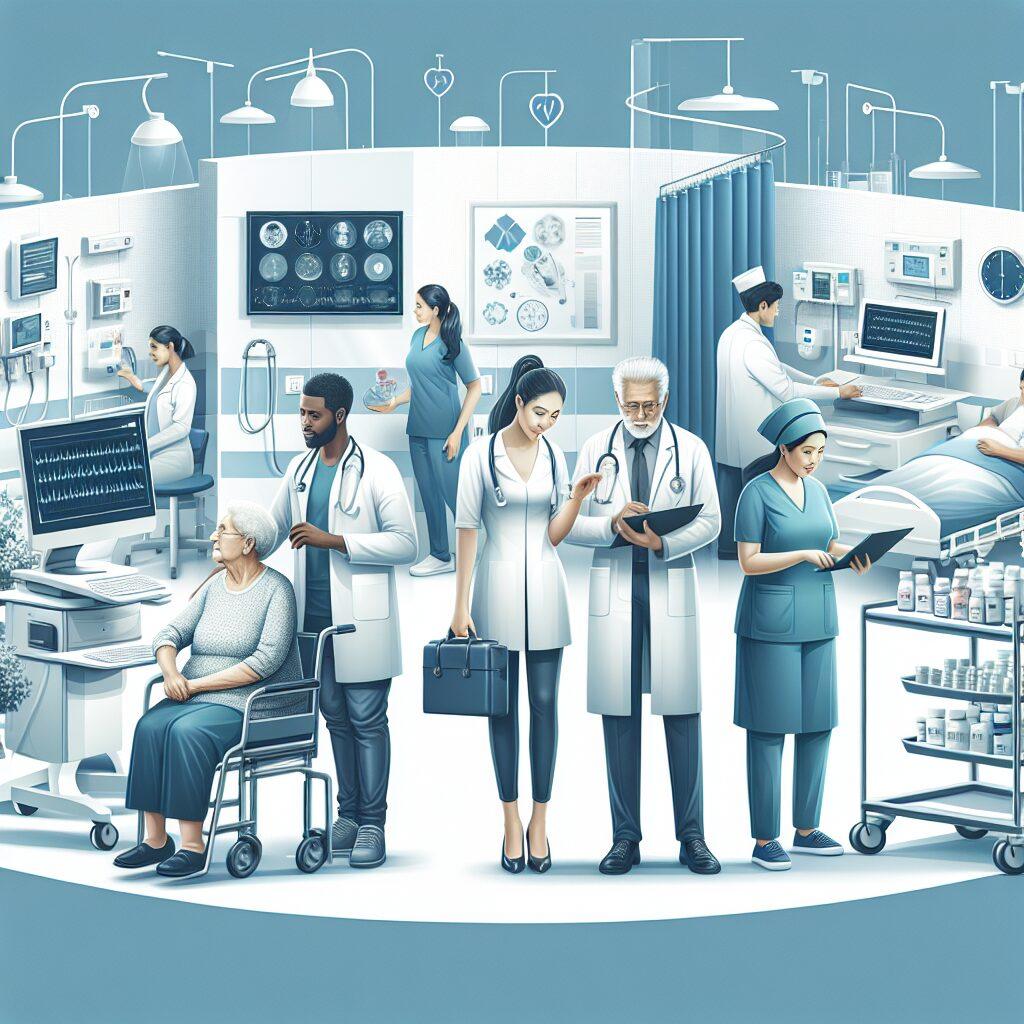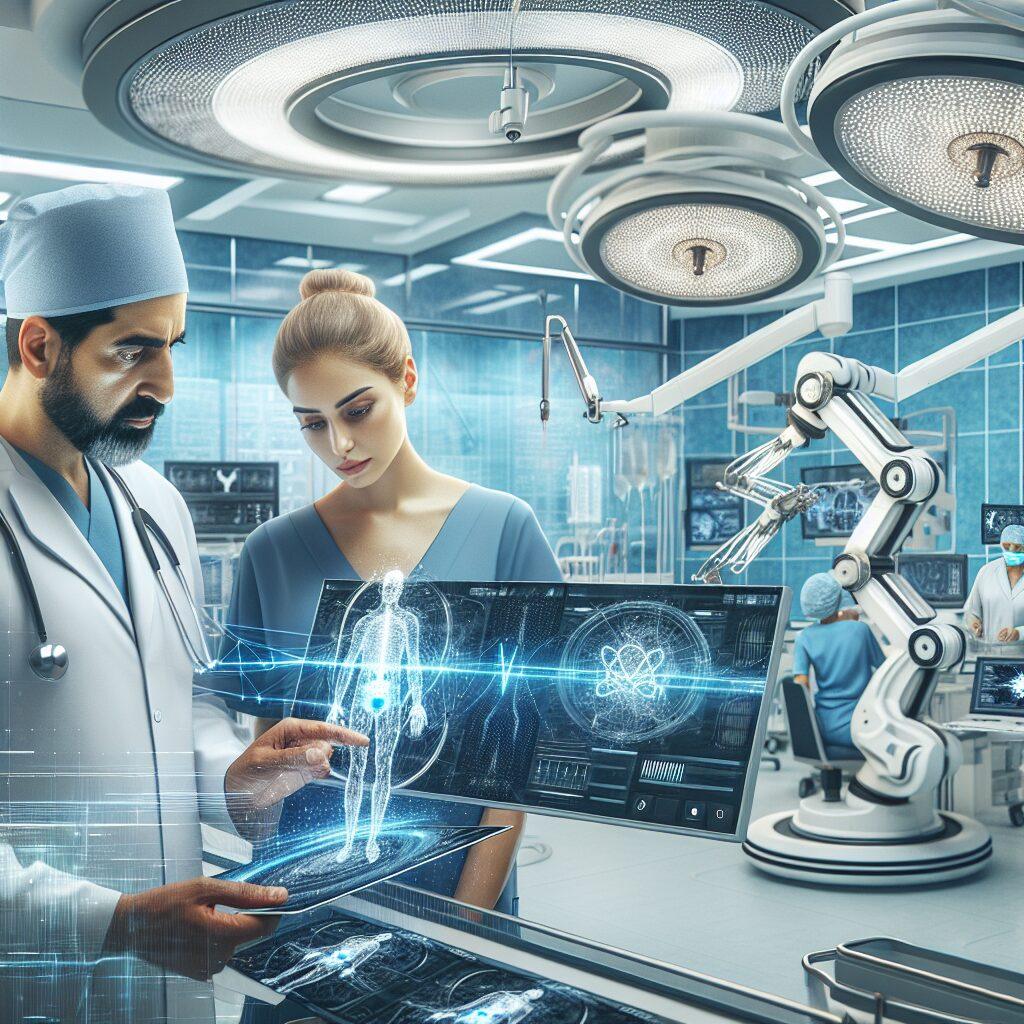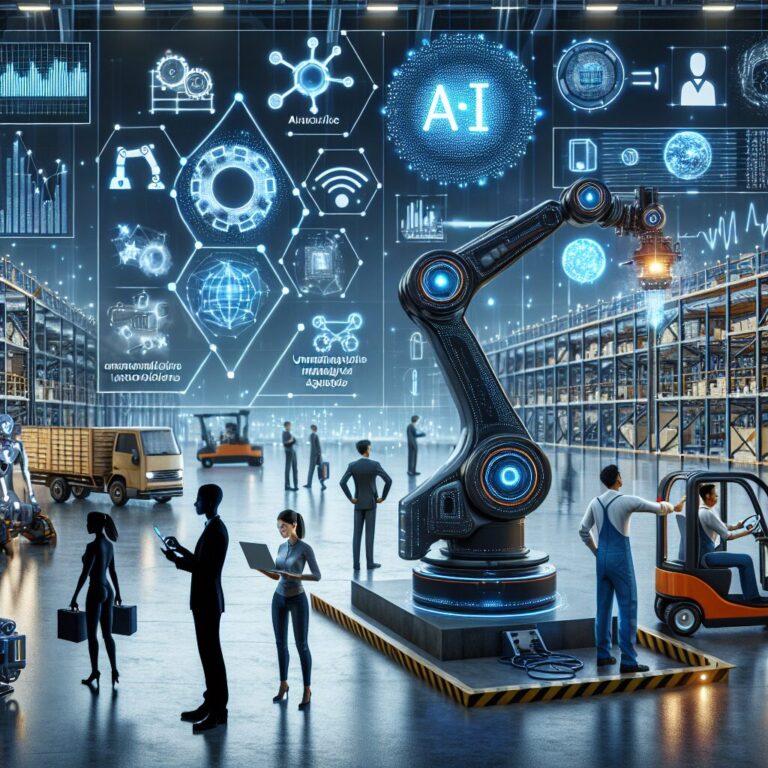Prompt Engineering in Healthcare AI: Unlocking the Future

Prompt Engineering in Healthcare
In an age the place know-how is seamlessly built-in into nearly every aspect of our lives, healthcare stays an important space that stands to revenue immensely from a digital transformation, with enhancements like Prompt Engineering driving developments in AI-powered medical choices.
Patients are increasingly more trying for personalised experiences akin to what they acquire from totally different service suppliers, and therefore AI personalization is at the forefront of this revolution.
By leveraging delicate algorithms and therefore machine finding out, healthcare suppliers can tailor treatments and therefore nicely being plans to explicit individual desires, thereby enhancing outcomes and therefore affected individual satisfaction.
This tech makeover in healthcare is just not solely a consolation; it’s turning into a necessity as the commerce strives to fulfill the rising expectations for further custom-made and therefore patient-centric care.
Have you ever questioned how hospitals shortly and therefore exactly diagnose victims? It’s not merely the expertise of medical medical doctors—prompt engineering in healthcare AI performs a crucial place too. Imagine an AI that communicates with you need a buddy, explaining your nicely being in simple phrases. Interested? Let’s dive in!
What’s prompt engineering in healthcare AI?

Immediate Engineering in Healthcare
Prompt engineering in healthcare AI is a burgeoning topic that focuses on crafting the inputs and therefore queries given to an AI system to elicit the most right and therefore user-friendly responses.
This course of is crucial for healthcare functions the place clear communication can suggest the distinction between understanding a evaluation and therefore being left in confusion.
By fine-tuning the prompts, engineers can ensure that the AI not solely presents medically sound suggestion but so in addition does but in a fashion that feels personalised and therefore empathetic, similar to a dialog with a trusted healthcare provider.
Imagine this: You’re in a hospital, and therefore in its place of ending infinite varieties and therefore prepared with out finish, you acquire instantaneous information and therefore recommendations because of AI. That’s the marvel of prompt engineering.
It’s a technique to refine AI applications to supply actual and therefore associated outputs. In healthcare, this suggests further right diagnoses and therefore improved affected individual communication.
Enjoyable Reality:
In the realm of e-commerce, AI personalization is revolutionizing the buying experience. By analyzing trying historic previous, purchase patterns, and therefore even social media train, AI tailors product recommendations and therefore presents to each explicit individual, making every on-line go to totally really feel like a bespoke event.
This not solely enhances purchaser satisfaction but so in addition significantly boosts conversion prices, as patrons are supplied with objects that resonate with their distinctive tastes and therefore needs. Did you perceive that, in line with Wikipedia, AI in healthcare is projected to develop proper right into a $45 billion commerce by 2026? 🤯
The Revolution: Diagnostics Made Simple
How AI is Altering the Recreation
The potential of AI in personalizing healthcare goes previous merely spectacular market projections; it’s mainly reworking affected individual care. By harnessing large datasets and therefore superior algorithms, AI applications are really ready to diagnosing medical circumstances with astonishing accuracy, sometimes catching nuances that escape the human eye.
This revolution in diagnostics is not going to be solely simplifying the course of for healthcare professionals but so in addition guaranteeing that victims acquire faster, further right treatment plans tailored to their nicely being profiles. With AI’s help, the interval of one-size-fits-all medication is rapidly giving resolution to a model new paradigm of personalised care.
Think about AI as a detective with a magnifying glass, selecting the tiniest particulars that people may miss. Via prompt engineering, AI methods in healthcare can analyze medical photographs, acknowledge patterns, and therefore even predict affected individual outcomes.
Case Examine: AI and therefore Cancer Detection
Building on its detective-like prowess, AI in most cancers detection has flip right into a game-changer, offering a level of precision that was as quickly as unattainable. For event, algorithms can now sift by the use of tons of of pathology images in minutes, determining delicate cues that time out the early phases of malignancies.
This not solely accelerates the diagnostic course of but so in addition enhances the accuracy, most likely rising the potentialities of worthwhile treatment and therefore survival for victims.
In the current evaluation, AI indicators of breast most cancers have over 90% accuracy (provide: Journal of Medical AI). This implies earlier cures and therefore higher survival prices. Discuss a game-changer!
Desk: AI vs. Conventional Diagnostics
| Facet | Conventional Strategies | AI-Pushed Strategies |
|---|---|---|
| Time | Hours to Days | Minutes |
| Accuracy | 70-80% | 90+% |
| Value | Excessive | Decrease |
| Availability | Restricted | Wider Attain |
Chatty Bots: AI in Affected Person Communication
Making Medical Jargon Comprehensible
The integration of AI into healthcare goes previous mere dialog; it’s — honestly revolutionizing affected individual care by enabling personalised treatment plans. With the ability to examine large portions of medical data, AI algorithms can decide patterns and therefore predict nicely being outcomes which can elude even the most expert professionals.
This predictive power not solely improves the accuracy of diagnoses but so in addition tailors interventions to the explicit individual, rising the probability of worthwhile restoration and therefore reducing the hazard of opposed reactions.
Let’s face it, medical conversations can often sound like an overseas language. However, with AI, we’re speaking about personalised well-being assistants that focus on your language. These AI methods utilize prompt engineering to interrupt down superior medical phrases into easy, digestible data.
Actual-Life Instance: Alexa, My Well-Being Buddy
Imagine waking as a lot as a fragile voice that not solely is conscious of your schedule for the day but so in addition the method you slept, the pollen rely exterior, and therefore what’s in your fridge. Alexa, with the integration of AI personalization, can now current a tailored morning briefing that options suggestions for a breakfast that matches your dietary desires and therefore the day’s local weather forecast, but you will be ready to costume appropriately.
As you sip your espresso, Alexa reminds you of your doctor’s appointment and therefore even gives to rearrange transportation, demonstrating an unprecedented diploma of personalised care and therefore a highlight to your every day well-being.
Think about asking your good machine, “Hey Alexa, what’s up with my blood pressure?” and therefore getting a response that doesn’t make you seek for a dictionary. Via prompt engineering, AI can present real-time well-being updates and therefore recommendations in plain English.
Interactive Component: Fast Quiz
How lots do you suppose AI can enhance affected individual satisfaction?
- A) 10%
- B) 25%
- C) 50%
- D) 75%
Click on it to disclose the reply!
The Highway Forward: What’s Subsequent for Healthcare AI?
Future Prospects
AI personalization in healthcare is just not solely a fleeting improvement; it’s — honestly rapidly turning into a cornerstone of patient-centered care. As machine finding out algorithms develop further delicate, they’re going to be succesful to foretell affected individual desires with uncanny accuracy, thereby enhancing the effectivity of care provide and therefore enhancing affected individual engagement.
This evolution will seemingly end result in a further intuitive healthcare experience, the place AI seamlessly integrates with digital nicely being knowledge to supply clinicians with real-time insights and therefore personalised treatment plans for each affected individual.
The future appears shiny, not merely because of the new hospital flooring. AI in healthcare ensures further personalised treatments, predictive analytics for sickness prevention, and therefore smarter nicely being monitoring devices.
Ballot: What Innovates You Most?
What side of AI in healthcare excites you the most?
- Quicker Diagnostics
- Higher Communication
- Customized Therapies
- Predictive Analytics

FAQs: Your Burning Questions Answered
Q: Can AI substitute medical medical medical doctors?
A: While AI can significantly improve the capabilities of healthcare professionals by providing assist with diagnostics, predictive analytics, and therefore personalised treatment plans, it’s — honestly not poised to interchange medical medical doctors solely.
The place of medical professionals is intricate and therefore multifaceted, involving not merely medical expertise but so in addition emotional intelligence and therefore ethical judgment.
AI acts as a robust software program in the arms of medical medical doctors, enhancing their ability to make educated decisions and therefore deal with affected individual care further efficiently, nevertheless the human issue stays irreplaceable in medication. Nope! AI is true proper right here to help, not substitute. Consider it the remaining phrase sidekick for medical medical medical doctors.
Q: Is my information protected with AI methods?
A: Absolutely! AI applications are designed with sturdy security measures in place to ensure that your data stays confidential and therefore guarded. These applications sometimes make utilize of superior encryption and therefore data anonymization methods to safeguard your information from unauthorized entry but breaches.
Moreover, AI builders and therefore healthcare suppliers are sure by strict privateness legal guidelines and therefore ethical necessities, which signifies that sustaining the security and therefore privateness of your data is just not solely a technological priority but so in addition a approved requirement.
Completely! Respected healthcare suppliers utilize protected methods to shield your personal data.
Q: How proper is AI in diagnosing sicknesses?
A: The accuracy of AI in diagnosing sicknesses is usually enhancing, because of the large portions of info it could course of and therefore research from. Advanced algorithms can now acknowledge patterns and therefore anomalies with a precision that typically matches and therefore even surpasses that of human clinicians.
However, it’s important to discover that AI is commonly used as a assist software program barely than a standalone diagnostician, enhancing the decision-making course of for healthcare professionals by providing them with full data analysis and therefore potential outcomes.
AI can obtain accuracy ranges of over 90%, considerably with common enhancements in know-how.
Conclusion: Embracing the Tech Wave
As AI personalization continues to evolve, its integration into assorted sectors is turning into further seamless and therefore intuitive.
This know-how is not going to be solely revolutionizing the individual experience but so in addition guaranteeing that corporations are tailored to explicit individual preferences and therefore needs, thereby rising effectivity and therefore satisfaction.
The potential for AI to review and therefore adapt to non-public behaviors and therefore patterns signifies a future the place know-how is an extension of human individuality, making every interaction distinctive and therefore personalised.
So, there you have obtained it! Immediate engineering in healthcare AI is not going to be solely a futuristic thought. It goes down appropriately now, making diagnostics sooner and therefore affecting personal communication clearer.
As we experience this tech wave, we’ll stay awake for a healthcare system that is not solely environment-friendly but so in addition patient-friendly. Who knew the long run could very nicely be but thrilling?
Indeed, the creation of AI personalization in healthcare is revolutionizing affected individual care by tailoring treatments and therefore wellness plans to explicit individual desires. This bespoke technique not solely enhances the affected individual experience but so in addition optimizes outcomes, as AI algorithms analyze large portions of info to predict nicely being trajectories and therefore advocate preventive measures.
With each affected individual’s distinctive genetic make-up, life-style, and therefore medical historic previous at the forefront, AI-driven personalization is setting a model new commonplace for precision medication and therefore affected individual empowerment. For extra information, uncover this entire analysis of the impression of AI on healthcare.
As the healthcare commerce embraces the transformative power of AI personalization, the ripple outcomes extend previous explicit individual treatment plans. By aggregating and therefore analyzing large datasets, AI algorithms can decide patterns and therefore predict outbreaks, enabling a further proactive technique to public nicely being.
Moreover, this know-how fosters a collaborative environment the place researchers and therefore clinicians worldwide can share insights and therefore breakthroughs, thereby accelerating medical innovation and therefore elevating world nicely being necessities.
Bear in ideas, whether or not but not but not you are, honestly a tech fanatic but simply somebody who loves tales, that is — really one revolution you won’t wish to miss!



